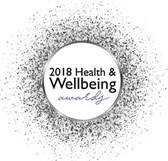|
France is embracing yoga and around 1.5 million have taken up the practice for therapeutic reasons according to Le Monde last week.
In a front page news article, "Le yoga intellectualise un peu la pratique de la gym". In a mainstream report, it goes on to say that in societies more and more dominated by stress, yoga represents an accessible way to better cope with modern life. Starting with the body, yoga works to relax and release daily tensions, and engages mental activity in a way gym work may not explictly do. Done well it fully engages the body and the mind, and the results leave the participant refreshed and more relaxed, re-energising rather than tiring the body, and this helps to support the body's systems to help maintain health. "More and more doctors are recommending that yoga is practiced 3 hours per week." And 3 hours per week suggests we are doing this at home too, supplementing the group yoga classes. Sounds good to me!
0 Comments
If you've tried yoga, you may already have an idea about the health benefits it can bring, the calm state of mind it can develop, the concentration and self-disclipline it can foster. Finding the right teacher and the right style for you is essential and not everyone takes to it straight away. But it has stood the test of time and has so much to offer.
But can yoga also develop these qualities in children? And could it help them increase there prospects of making more of their time in school for learning? Yoga is being tried at Quarry Brae primary school near Glasgow who are trying it to find out and so far the results are really encouraging. The school is in a deprived area and many of the children show up to school without having a structured start to the day, often coming from unsetttled home environments. This can set the day off with a rocky start, and the disruption can spill over into the classroom where concentration and discipline can be challenging. They have been trying starting the day with some yoga techniques, using some physical postures, chanting, breathing, mudras to calm the children down, provide a sense of concentration and discipline and prepare the children much better for a day of group participation and learning. The children are responding well, enjoying the practices, noticing and commenting on how calm they feel and how it is helping them to concentrate and 'feel better'. One 11 year old comments: "I got hit in the face with a ball, usually I'd go up and start a fight with whoever did it but I don't any more. I used to have a quick temper and yoga has calmed that down." Many of the physical yoga postures were designed with children in mind. They often have playful names like 'downward facing dog' to help make them memorable and appealing. And practices such as jumping in and out of the postures help keep the young people engaged and challenged as they work through the practice. The school teachers are supportive and at least one has gone on to be trained as a yoga instructor and is bringing yoga practices in to her classes to help prepare the children for learning. It takes a specialist approach to help children get the best out of their yoga practice. But what this school has done seems to demonstrate something that should be explored and tried out further, both with children and with adults. Many of us are already embracing the benefits of yoga and gradually learning how to apply yoga to help us in our everyday lives. It has so much to offer from relaxation and calmness, to health and therapy to support and improve health problems, and can even bring a more connected, holistic and spiritual aspect to our everyday lives. Lots to explore. If you are one of those lucky people who can sleep anywhere, then you are the envy of many. I'm usually okay except when there seems to be lots going on, or when the circumstances are less than ideal. So here is the challenge which I found myself in recently...
Staying at a friends rural flat the other night, the local farmer who was also the landlord, was having a get together downstairs with other people from the valley. They were singing folk songs, there was a guitar, and they were directly beneath the bedroom where I was sleeping. Around midnight, they remembered the magnificent TUBA, and starting to provide a 'pump, pump, pump, pa-pa-pa-pump' richness to the songs. Sleep was needless to say not happening easily! So three steps were employed to help... Step 1 - ear plugs. There was no blocking out the catchy tunes, but muffling would definitely help, and ear plugs help to tune you in to the sound of your own breathing rather than the sounds of the nearby party. Step 2 - yoga breathing techniques. Gentle ujayii 'whispering breath' in a slow rhythmic pace to help relax the body, focus the mind in on more calming thoughts (beyond the fantasies of the party-goers remembering slumbering neighbours and quietly all ending the music) and gentle breath-pauses to comfortably encourage a more sleep inducing breath. Step 3 - counting the breath. Like counting sheep (and counting sheep can help too) counting the number of breaths taken and trying to get up to 30-or so, and then counting back down again. Keeping count is harder than you might think but again it focuses your thoughts rather than getting annoyed or caught up in other stories. These simple techniques left me fast asleep shortly afterwards, leaving the magical tuba to fill the valley with comical rhythms that I'm sure kept other would-be-sleeping neighbours awake far longer than they would have liked. Yoga has much to offer those who suffer from sleeping difficulties, with either short-term problems, or longer term difficulties where a more structured programme of yoga can be used. Typically you would try including very gentle, calming postures before bed, or specially selected postures earlier in the day that help reduce disturbances in the body or energy levels that can make sleep difficult. A personal yoga programme (yoga therapy) can be hugely helpful to address your sleep issues and help sleep come more easily. A short daily yoga practice can greatly ease the ability to fall asleep and stay asleep the whole night. Most of us need more and better quality sleep, and this is an often overlooked aspect of our health. This morning on Radio 4 they mentioned the Sleep Scotland initiative which is being promoted to help address this problem and highlight the issue, especially as a serious issue in children. Another thing to bear in mind is that not everyone needs the same amount of sleep, especially as adults, and many need less than perhaps they think they do. But if you find yourself tired in the daytime, then too little or too much sleep might be an issue for you depending on your constitution. There are many things that are available to help, including yoga, but one I don't recommend is of course the tuba, unless it is your favourite hobby in which case I'm willing to stand corrected! To introduce yoga to someone who is completely new to it, and to do it in a succinct way, is a tall order. With several thousand years of accumulated knowledge and with a thriving and growing community of yoga students around the world, there are a million interpretations and understandings of what yoga is. The definition is often personal, experiential and depending on your take on it, can be hard to express to someone else to do it justice. With the upcoming introduction to yoga workshop on March 21st, we are taking just 3 short hours to explore and introduce it but it'll just begin to touch the surface...
For some yoga is a physical practice to keep fit, moving the body into a range of sometimes unusual postures to build strength, flexibility and to energise the body. This is the most common western notion of yoga and it has much to offer practitioners at this level. But there are other meanings to what yoga is aswell that go a little deeper and can become more esoteric. For many it is a way to work with the body along with a particular mental attitude, in an effort to try to establish and develop mental focus and stamina. Many use yoga to help them bring a meditative space into their lives. Some use it for therapy and healing to help recover from or reduce illness and discomfort. Some use it as a tool for self-enquiry or even enlightenment. (The psychology in Patanjali's Yoga Sutras offer an ancient explanation that is useful today for understanding ourselves better and supporting us on a journey through personal change.) Many develop a sense of communion with something beyond the everyday into their yoga and some bring religion and devotion aswell. The experience and meaning of yoga is widely varied and can sometimes be worlds apart from each other - in common is that they all bring benefits to the practitioners that develop through regular practice. Experiencing a level of benefit is an obvious but key aspect to continuing to pursue yoga practice. Yoga isn't something you master quickly - it can become a lifelong pursuit for someone who is interested. Just as you feel you have the hang of one thing, you realise there is much more to it than you first thought and doors open to many things beyond it. The key aspect is about practice, there is plenty of theory but without practice, you can only go so far. The term yoga, from the root 'yuj' in the ancient indian 'Sanskrit' language, means to 'yoke' or to 'connect', 'harness', or 'union' (further definitions of the term yoga read more here). For those starting with the physical yoga practices, you are connecting more closely with your body, harnessing it's power and strengthening and toning the muscles, structures and systems within it. For those developing the more mental practices, you are connecting the mind and the body, often uses the breathing practices of yoga as a key connection between the two. It sounds obvious, but many of us today are out of touch with our bodies, have no idea how to control or contain our thoughts, and find ourselves not quite keeping up with where our minds and bodies want to take us. Yoga aims to help us harness and gain some level of control over our minds and bodies so we can focus and direct ourselves, perhaps to more meaningful pursuits if that is what we are after, or to move beyond our minds and bodies. So how far will we get in our three hour workshop?! Well of course some yoga practice to start to experience what it might be about, an introduction to some key postures and ideas, some context to help get an overview of it all, and informal and helpful discussion to help clarify what it might mean for you. It should be an interesting Sunday afternoon. For more info on the next Introduction to Yoga workshop, visit the Yoga workshops page. The first post of many to share and explore ideas, thoughts, news, yoga themes and offerings as they develop through my yoga teaching and study. With the hope of continual learning, I'm always happy for comments, discussion and questions either through the blog or feel free to contact me directly at [email protected].
Many thanks. |
More blog articles >Categories
All
Archives
July 2024
|
|
Bristol YogaSpace Ltd
Princes Place, Bishopston Just off Gloucester Road Bristol BS7 8NP |
|


 RSS Feed
RSS Feed

